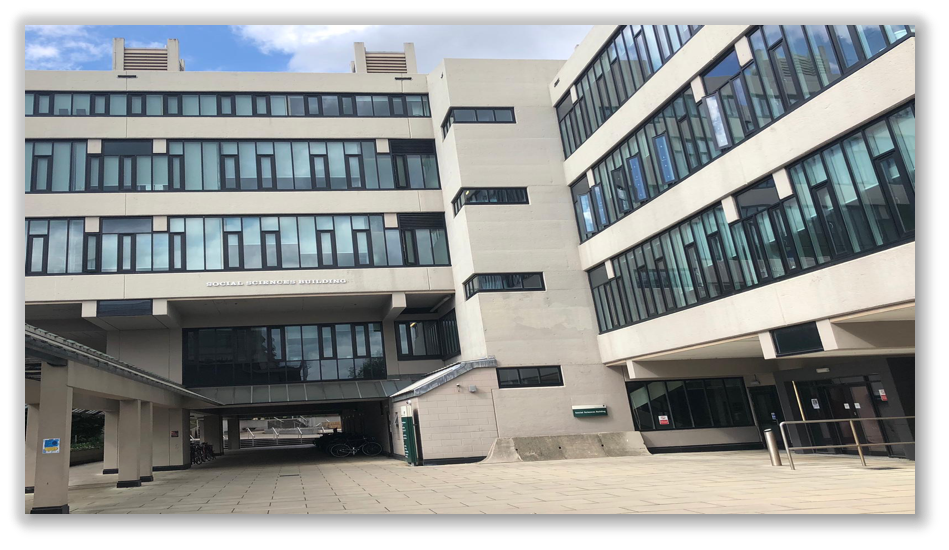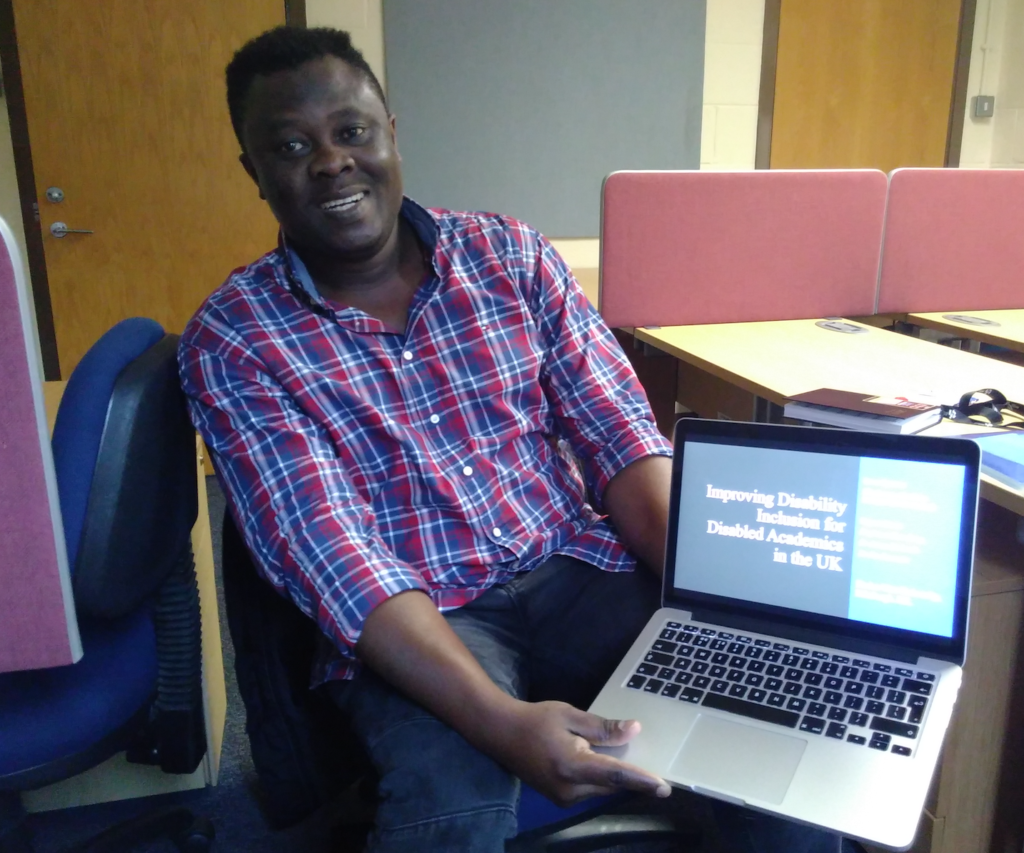Abraham writes about his first experience of an academic conference

Having my first PhD presentation at the Centre for Disability Studies (University of Leeds) conference in Leeds has been an eye-opening experience into disability studies and research. It was obvious that the organisers were thoughtful of the event preparation by ensuring accessibility for wheelchair users with clear direction for different presentations in different rooms. This effort was noticeable from registration to the attendance of the conferences (e.g., asking attendees to specify their needs for accessibility support). The diversity of different people from different professional backgrounds in disability studies enriched the shared knowledge of disability across the board from past, present and future. In a nutshell, it was fascinating.
Before my conference presentation, the level of achievement anxiety or impostor feeling that hit me was inexplicable. Besides, I could not help to question my position in this research as a not yet disabled or unidentified disabled research student. Hence, my positionality appears a bit challenging and the magnitude of PhD research skyrocketed my impostor syndrome that raised various doubts in me, especially as a minority from nothing to something. This dogged out a side of me that have never experience in my life, some kind of insecurity with constant negative thinking reinforced with catastrophising, continuous thinking errors and ruminations, to name few. Yet, I kept my focus on the task and faced the “can’t do monster” in my thought process and politely delivered my first PhD conference presentation to the right audience that was encouraging and warmly receptive with supportive and non-judgmental supervisions. This made me realise the importance of adjusting the situational aspect of impostor feeling and encouraging an inclusive environment when being exposed to novelty as a process that enhances change and self-development. In reflection, I genuinely think that in the process of accumulating knowledge or achievements through obtaining degrees in universities, there is also a natural tendency of bagging some achievement anxiety, such as impostor phenomenon that requires research attention and awareness.

The networking and discussion forum in the conference was phenomenal and overwhelming with enlightening emphasis on recognising the importance of emotion in disability research for both researchers and participants. This highlighted the need for ethical consideration in disability research to understand that the process of discovery can sometimes be sensitive because the topic in discourse or research could elicit emotional distress for both participants as well as researchers when researching the lived experience in regards to a particular topic. Besides, in this conference discussion forum, it appears to me that special education can be considered an illusion constructed by social perceptions, separating so-called disabled children from non-disabled children. Yet, there is often the concept of choice discourse that underpinned parents’ perceptions and preferences for their disabled children in which some parent will prefer inclusive education while other parents could prefer special education as the best educational development for their children, and vice-versa. This reminded me that disability is personal which is experienced differently or express itself in people’s lives in different ways and this should be considered in research. The discussion forum suggests that mobilising parents who are the experts could help ensure the school or educational system are making the right decision for disabled children in schools. That said, a kind of comprehensive inclusiveness that won’t exclude, single-out or segregate disabled children and disabled young people with their impairments may also be useful as an inclusive interface in the education system for disabled children.
Having highlighted the challenges disabled academic are facing in my presentation, I was fascinated by some of the interesting and thought-showering questions or comments in the discussion forum in regards to my research project which I will consider as an essential factor in researching disabled academics lived experiences. This includes the effort to consider how disabled academics’ experiences play in their interaction with students. Likewise, another question pointed to what universities even consider as a reasonable adjustment for disabled academics? and whether even when provided with reasonable adjustment, are you as disabled academic still expect to perform to required expectation or does this provided reasonable adjustment reduce the high expectation to perform which often comes with huge pressure for academics let alone disabled academics. This unveils my interest in looking into the disabled academics experience and their perception of inherent requirement. So far, at this early stage of my PhD research, this experience has given me some confidence to roll with the punches through the journey coupled with the desire to give my best into any task required of me in the process. I will conclude by saying that a journey into one’s sense of self is a competition against oneself toward any endeavours or ambitions in life.
